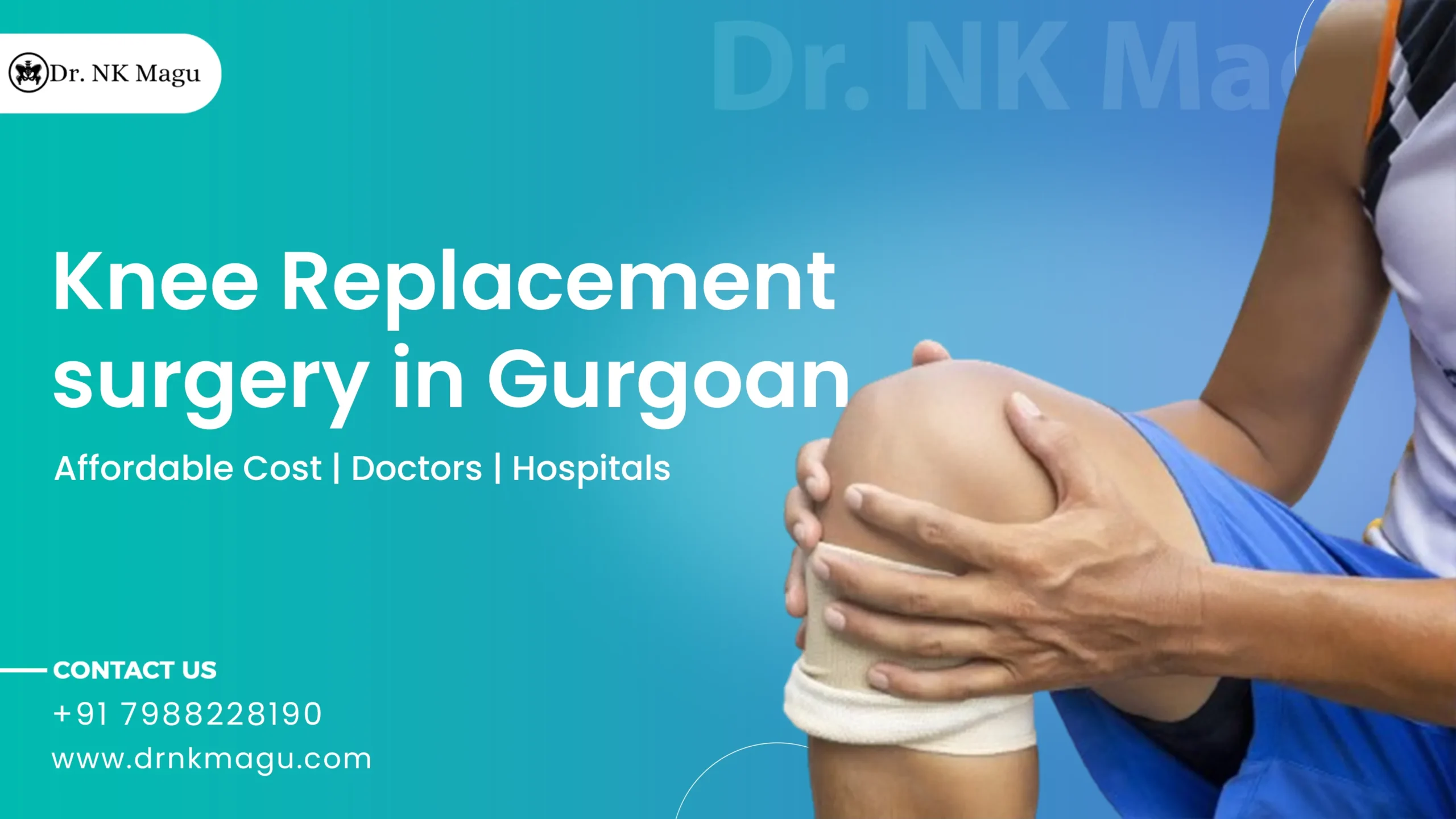Knee arthroplasty is one of the favorite and most successful surgeries among orthopedists and Surgeons of the present era. The majority of patients report less or no knee pain, improved range of motion and enhancement of the general state of well-being. Arthroplasty is a surgical procedure whereby segments of the injured or degenerative knee joint are replaced. The surgery might alleviate pain and improve the function of the knee. In the surgery, the discarded bone and cartilage are replaced with metallic and plastic components.
When choosing between various options a surgeon examines the knee’s flexibility, stability, and muscular force. X-rays are useful to some extent in showing how much damage has been done.
Knee Replacement Surgery Cost in Gurgaon
The cost of knee replacement surgery in Gurgaon varies greatly depending on the patient’s needs, the type of surgery they require, the hospital where they are receiving treatment, the surgeon’s experience, and the prosthesis that is being used. The price range for these elements is between Rs. 1,20,000 to Rs. 9,00,000 ($1400 to $10800). The average expenditures for each type of knee replacement surgery are broken down as follows:
- Total Knee Replacement: Rs. 2,50,000 to Rs. 5,00,000 per knee.
- Partial Knee Replacement: Rs. 80,000 to Rs. 4,00,000 per knee.
- Bilateral Knee Replacement: Rs. 3,00,000 to Rs. 8,00,000 for both knees.
Also Read: Knee Replacement Surgery Cost in Delhi
Factors That Can Affect the Cost of Knee Replacement Surgery in Gurgaon
Below are some of the factors that can affect Knee Replacement Surgery cost in Gurgaon:
- The extent of the leg deformity: In cases of extreme deformities, the procedures that need to be undertaken may be more elaborate, thus increasing the general cost.
- The surgical procedure performed: Various procedures that can be taken to replace the knee (total knee replacement surgery, partial knee replacement surgery, or bilateral) vary in cost.
- The quantity, type, and brand of implants used: Another factor is the type and the brand of the implant which is also directly connected to the cost.
- The selected hospital type: The amount that a candidate is willing and able to pay can also alter depending on the place the operation is performed, whether in a private, government or specialty clinic hospital.
- The patient’s medical history: Patients who have other illnesses or conditions may require further pre-operative examinations, therapies or post-operative care and this also leads to a high overall cost.
The cost of knee replacement surgery in Gurgaon includes not only top-tier medical care and facilities equivalent to renowned healthcare institutes throughout the world, but also lodging, food, and transportation costs.
Types of Knee Replacement Surgery
There are different types of knee replacement surgeries depending on the condition of the knee joint.
- Total Knee Replacement (TKR): This involves the replacement of the knee joint with a prosthetic one and is mostly done in severe cases of arthritis. It is advised to patients with severe arthritis or with significant joint destruction.
- Partial Knee Replacement (PKR): In this surgery only the specific part that has been damaged in the knee is replaced. This procedure is less invasive than TKR and has faster recovery than TKR or OA.
- Bilateral Knee Replacement: Both knees are replaced at the same time which is a procedure advised for patients having arthritis in both their knees.
How is Knee Replacement Surgery Performed?
First, the orthopedic surgeon has to cut the knee then shifts the kneecap to the side. In case there are spurs on the bones (which are common in cases of osteoarthritis), they shall be shaved off.
Then, the two menisci located between the femur and tibia are also discarded as well as the anterior cruciate ligament (ACL), and in some instances the posterior cruciate ligament (PCL). In some varieties of the procedure, the PCL is preserved.
During the main phase of the operation, the surgeon involves the removal of cartilages and little bone from the proximal end of tibia and distal ends of femur. The sections removed from the femoral area are two round swelling known as the femoral condyle. The ends of the tibia and femur are next coated with metal implants in an effort to form new joint surfaces. Coating of the femoral component looks nearly identical to the shape of initial femoral condyles. If the kneecap also deteriorated, then the portion on the side facing the shin bone can be scooped out and the polyethylene (plastic) insert can be placed.
Last of all, the different layers of tissue are sutured with dissolvable suture materials and the skin is closed with sutures or surgical staples. A bandage is placed around the knee and the patient is transferred to the recovery area.
After The Procedure:
You will then be moved to the recovery room after the surgery is done. Once your blood pressure, pulse rate, and breathing have returned to normal and you are fully conscious, you will be transferred to your ward. Knee replacement surgery implies that the patient stays in the hospital for 2-3 days or longer if complications are suspected.
Initiation of movement is also possible soon after surgery; it’s suggested that slight movement of the new joint is started. After surgery is done on you, a physical therapist will refer to you soon and develop an exercise regime that you will undergo. Physical therapy may be started by using a CPM or continuous passive motion machine. This machine swings your new knee joint for the range of motion while you are asleep in bed. To ensure that you can exercise, your pain will be managed with medication. Depending on the kind of sickness you have, you will be assigned a recommended exercise regimen to be done while in the hospital as well as after being discharged.
Depending on the disease’s severity or the type of surgical procedure, you will be discharged home or to a rehabilitation center. In any case, your doctor will arrange for your further physical therapy in order to have the muscles strengthened and the joint range of motion restored.












